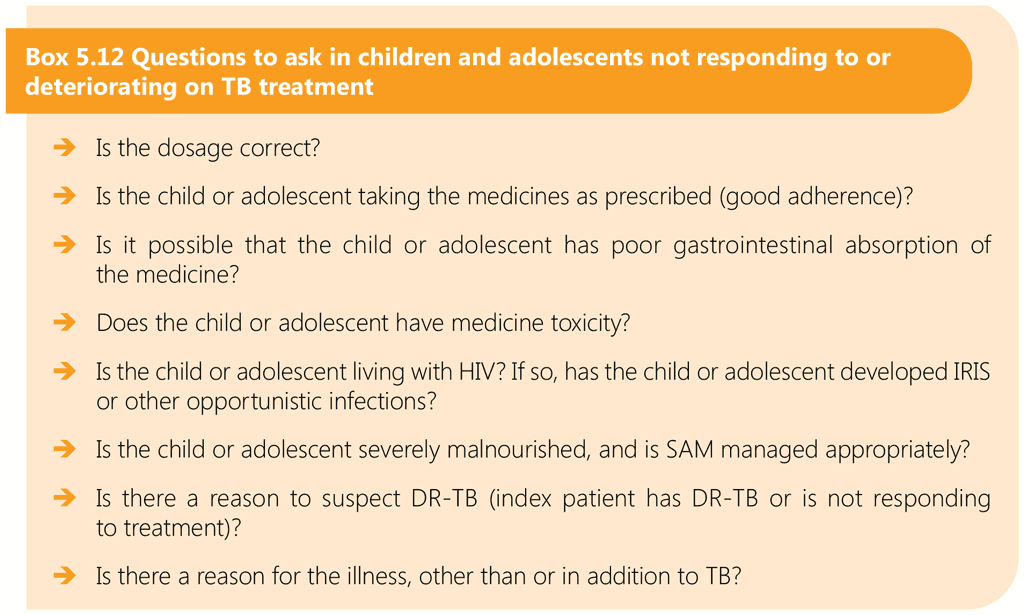Перекрёстные ссылки книги для 5.2.12.3. Treatment failure
A person with treatment failure is defined as one whose treatment regimen needed to be terminated or permanently changed to a new regimen or treatment strategy. Reasons for such a change include no clinical or bacteriological response, adverse drug reactions, and evidence of resistance to medicines in the regimen (108).
The possibility of treatment failure should be considered in a child or adolescent who is receiving TB treatment and (72):
- has no symptom resolution or has worsening symptoms;
- shows continued weight loss;
- is smear-positive at 2-months’ follow-up (for children and adolescent with bacteriological confirmation at diagnosis).
Box 5.12 summarizes important questions to ask if a child or adolescent is not responding to or is deteriorating on TB treatment.

Poor adherence is a common cause of treatment failure. Treatment failure also suggests the possibility of RR/MDR-TB and needs careful assessment with additional diagnostic evaluations. It may also be more common in children and adolescents living with HIV (79).
 Обратная связь
Обратная связь